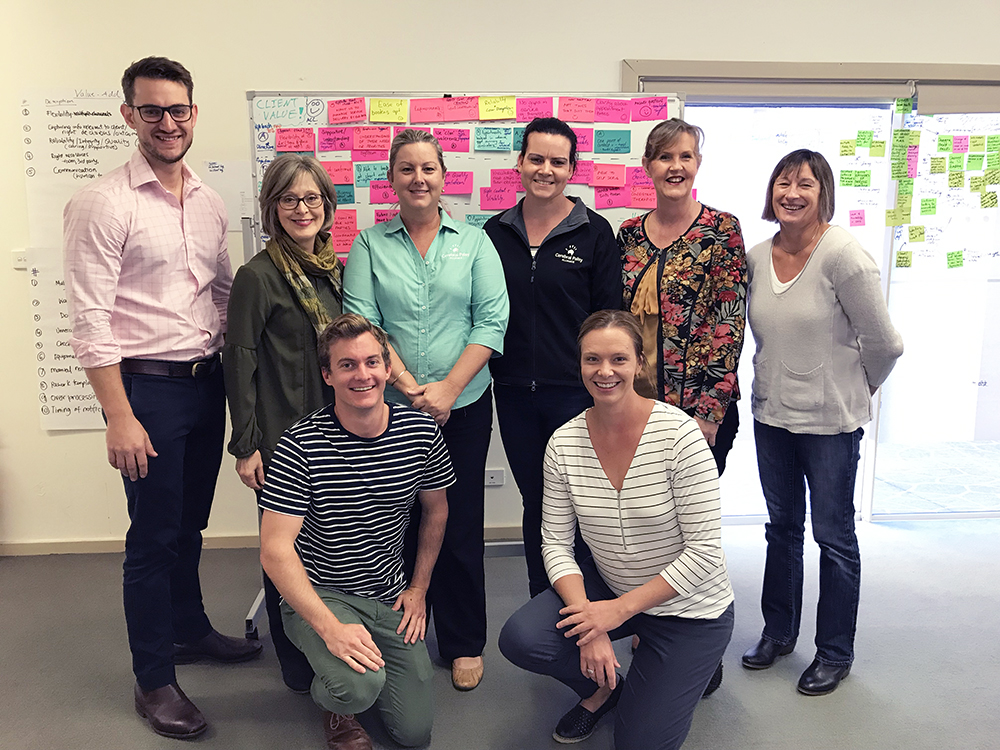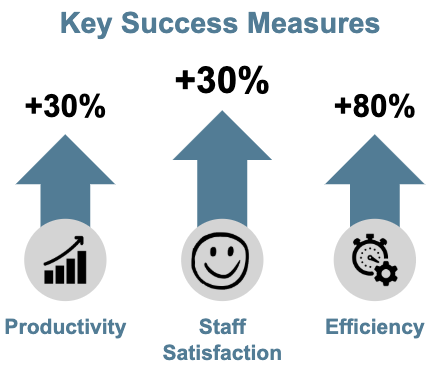February 11, 2020
Written by Paul Thornton
Background
The nationwide introduction of the National Disability Insurance Scheme (NDIS) in July 2016 sparked a large-scale transformation of organisations within the Australian disability sector. Since then, the sector has experienced continual disruption and shifting requirements which have required disability providers to become increasingly adaptive and commercially aware of the realities they now face in a “market-driven” environment. The vision of a balanced ratio of disability services (supply) to need (demand) is an important and valid goal for the sector, but it places significant pressures on both existing and new providers to balance financial performance with delivering quality support to their clients. Their challenge is to remain true to the mission and vision of their organisation while building commercial sustainability in the new NDIS environment.
Cerebral Palsy Alliance (CPA), a non-profit disability provider based in NSW and the ACT, is at the forefront of this transformation. CPA’s goal is to leverage its strong foundations of high-quality services and a people-first approach (including employees and clients), to remain financially viable in an increasingly competitive market.
The Opportunity
CPA engaged consultancies Fire & Flint and Mantel Group to support them in applying lean and agile principles and methods to assist them in reshaping the way they approached improvement in their business. Lean and agile are relatively new terms in the context of the disability industry but have been pivotal in transforming improvement and delivery in industries ranging from manufacturing and health care to software development and banking & finance.
They are ways of thinking that emphasise a strong focus on optimising value for the end customer through the engagement of front-line staff (the people doing the work) to continuously improve their practices. Further, they emphasise breaking down problems into manageable pieces, so that value can be delivered sooner than in traditional “big bang” transformation initiatives. CPA is committed to making the lives of their clients and staff better and saw lean and agile as an opportunity to shift the way of thinking in their company and the Australian disability sector more broadly.
Case Study: Scheduling Process Automation
The first problem that CPA wanted to tackle was their cumbersome scheduling process for booking client appointments. A method known as a “Kaizen event” was used to rapidly define, analyse, problem-solve, and redesign a future scheduling process that would be faster, better, cheaper and more sustainable for CPA staff to manage. A Kaizen event is a high-impact, time-boxed event usually held over 3-5 days which brings together a core team made up of front-line staff, key business stakeholders, leaders and improvement coaches to focus intensively on improving a process.

Nik Ilich with the CPA scheduling Kaizen team
The CPA scheduling project was conducted at the company’s Croudace Bay site, located in the Hunter region of New South Wales, and led by their Senior Business Manager, Alicia Frost. The CPA Kaizen team worked through a structured problem-solving process to arrive at an achievable future state, that was then pilot tested in a real-life environment by CPA staff and measured for a period of 4-6 weeks. After the testing period, the process was further refined and improved based on feedback received from the end customer and staff.
The Outcomes
Through this process, CPA successfully engaged their staff in a collaborative journey that not only delivered excellent, proven results (see key success measures below) but developed improvement capability and ownership amongst their people that will extend beyond this project. What is particularly great to see is that staff satisfaction has improved as a result as well!

An Exciting Outlook
Since the scheduling Kaizen event, CPA is now in the process of rolling-out the proven changes across its various sites in pursuit of a harmonised way of scheduling with strong executive support. The following is a quote from Paul Henderson, Chief Operating Officer at CPA, articulating the value and benefit of the work the project team has delivered.
”The most important outcome is that our Croudace Bay team have done an excellent job in moving our organisation forward, allowing us to deliver better outcomes for our clients, and these improvements will benefit all of our therapy sites, hundreds, indeed thousands, of clients.”
Paul HendersonCOO at CPA
CPA is also near completion of its next improvement initiative with support from Fire & Flint and Mantel Group, which is focusing on transforming the service access journey for new and existing CPA clients. In this initiative, we have again applied a unique blend of lean and agile thinking to tackle a large scale transformation in a practical and incremental way. We are excited to share the results of this initiative in the future!
Improvement is not a one-off exercise and requires continual focus and reinforcement to deliver lasting and sustainable results. CPA is showing impressive commitment to a new way of working and should be commended for the level of respect and consideration they have shown for all stakeholders that they engage with. It has been an absolute pleasure to work with them.
If you would like to learn a little more about the approach we have taken (Kaizen events), please head on over to the website of our partner on this project, Fire & Flint.
Fire & Flint is a business improvement consultancy born and bred in Brisbane comprising an experienced team of practical, values-driven doers who are motivated to partner with clients and their people to achieve impactful results. They spark change in the fields of business improvement, leadership, strategy, and Lean & Agile coaching.